Entrevista con la académica Luz Marina Mateo. Pensar el conflicto desde su carácter de oculto a la opinión pública internacional como una de las aristas de la modernidad
Pregunta: Ud. ha trabajado sobre la primera tesis de una Maestría que en Argentina trata el asunto de Sahara Occidental. ¿Puede explicar qué le motivó realizar investigación sobre este caso poco conocido en la opinión pública?
Luz Marina Mateo: Como afrodescendiente (miembro de la comunidad caboverdiana en la Argentina), la situación del pueblo saharaui la conozco desde muy pequeña, dado que el comienzo de la lucha del Frente Polisario es prácticamente simultáneo a la lucha por la independencia de las colonias portuguesas en África, por lo cual en mi entorno se hablaba no solamente de lo que por entonces sucedía en Cabo Verde o en el resto de las colonias portuguesas, sino también de situaciones similares en otros puntos del continente. Pasado el tiempo, al ingresar a la Maestría en Relaciones Internacionales, el caso saharaui volvió a ser parte de mi agenda desde lo académico. Tiempo después, conjuntamente con el Dr. Norberto Consani (director del Instituto de Relaciones Internacionales de la Universidad Nacional de La Plata, IRI-UNLP), inauguramos la Cátedra Libre de Estudios sobre el Sáhara Occidental -única en el mundo- del IRI-UNLP. Allí comencé un intenso trabajo de investigación, extensión y docencia, que me permitió profundizar en el tema al cual me dedico de lleno desde hace seis años. En ese marco surgió la tesis.
¿Cuáles son los ejes centrales de su trabajo de investigación?
El marco teórico es el pensamiento decolonial aplicado a las relaciones internacionales, la comunicación y el derecho, proponiendo pensar el conflicto desde su carácter de oculto a la opinión pública internacional como una de las aristas de la modernidad que tiene a la colonialidad como inherente y que abarca no solo a territorios sino a personas y procesos sociales; ello muestra la necesidad de plantear procesos de descolonización que incluyan la decolonialidad del poder, del ser y del saber, a lo que podríamos agregar «del expresar y comunicar», desde paradigmas distintos a los preestablecidos por el colonialismo.
Es en este contexto, distintos actores sociales y gubernamentales del pueblo saharaui denuncian que el proceso de descolonización no se lleva a cabo, entre otras cosas, por la existencia de un bloqueo informativo que impide que la comunidad internacional conozca el problema y, por ende, no pueda hacer presión para revertir la situación. Es por ello que el foco de la investigación está puesto en las estrategias de comunicación del pueblo saharaui, en su lucha por visibilizar el conflicto, una visibilización que es considerada por ellos mismos como poderosa herramienta para lograr la autodeterminación. De allí el título de la tesis: «Decires nómadas. La lucha del pueblo saharaui por derribar el muro del silencio».
En este marco, se analizan no solamente los medios de comunicación saharauis como escenarios de visibilidad de esa lucha, sino también la tarea de otros actores en distintos espacios donde se opera la producción de sentidos para alcanzar sus objetivos de descolonización: actividades políticas, artísticas y asociativas y presencia en redes sociales de asociaciones e individuos referentes de este pueblo, destinadas a hacer emerger la cuestión saharaui en los distintos países.
Le ha llevado cuatro años desarrollar este trabajo de investigación, qué puede decirnos de las fuentes que ha obtenido para acceder a información sobre el caso.
 Como he comentado, esta investigación fue llevada a cabo de manera multidisciplinar (desde las Relaciones Internacionales con el Derecho Internacional y la Comunicación Social), por lo que se ha consultado abundante bibliografía, acompañada de un trabajo de campo de más de cuatro años, del cual fueron seleccionadas ochenta y cuatro entrevistas a distintos referentes del pueblo saharaui y personas de otro origen involucradas en el tema, realizadas la mayor parte de ellas de modo presencial en África (Sudáfrica, Mozambique, Nigeria y Argelia), América Latina (Argentina, Cuba y México y Europa (España) y un menor número concretadas a través de internet. Ello, junto con la experiencia adquirida a partir de la tarea desarrollada desde la Cátedra Libre de Estudios sobre el Sahara Occidental, ha permitido poner en diálogo una serie de ideas y saberes, con el fin de investigar el tópico presentado y, sobre todo, de que sea el propio pueblo saharaui quien asuma un rol protagónico en la construcción de los conocimientos que el trabajo aporta, de modo que las entrevistas son consideradas un insumo prioritario a lo largo de las tres partes en las que se divide esta obra, realizada no solo con una perspectiva decolonial sino también desde la periferia de los centros de poder mundial y llevada a cabo por una mujer, latinoamericana y afrodescendiente.
Como he comentado, esta investigación fue llevada a cabo de manera multidisciplinar (desde las Relaciones Internacionales con el Derecho Internacional y la Comunicación Social), por lo que se ha consultado abundante bibliografía, acompañada de un trabajo de campo de más de cuatro años, del cual fueron seleccionadas ochenta y cuatro entrevistas a distintos referentes del pueblo saharaui y personas de otro origen involucradas en el tema, realizadas la mayor parte de ellas de modo presencial en África (Sudáfrica, Mozambique, Nigeria y Argelia), América Latina (Argentina, Cuba y México y Europa (España) y un menor número concretadas a través de internet. Ello, junto con la experiencia adquirida a partir de la tarea desarrollada desde la Cátedra Libre de Estudios sobre el Sahara Occidental, ha permitido poner en diálogo una serie de ideas y saberes, con el fin de investigar el tópico presentado y, sobre todo, de que sea el propio pueblo saharaui quien asuma un rol protagónico en la construcción de los conocimientos que el trabajo aporta, de modo que las entrevistas son consideradas un insumo prioritario a lo largo de las tres partes en las que se divide esta obra, realizada no solo con una perspectiva decolonial sino también desde la periferia de los centros de poder mundial y llevada a cabo por una mujer, latinoamericana y afrodescendiente.
Tanto la selección de las fuentes como la investigación en sí misma, fueron concebidas como una acción de compromiso con la justicia, con la convicción de que ello aporta profundamente a la rigurosidad, dado que nos obliga a tener una visión abarcadora e inclusiva de saberes y voces a la hora de estudiar y analizar cualquier fenómeno social. El hincapié se hace en la construcción de la propia realidad por parte de un grupo subalternizado, partiendo de la convicción de que esa supuesta neutralidad o imparcialidad a la que el pensamiento científico de la modernidad/colonialidad nos obliga, es muy útil a los fines de preservar elstatu quo de los esquemas vigentes de poder, porque distorsiona la visión sobre las condiciones desiguales en las que se desarrollan las luchas y las producciones de saberes contra esa opresión. Por el contrario, la producción de saberes y discursos, en nombre del rigor académico y la honestidad, no debe perseguir la neutralidad -siempre inalcanzable- a modo de horizonte, sino mostrar claramente desde qué lugar y con qué objetivos se lleva a cabo.
Ud. define el asunto de Sahara Occidental como «una descolonización inconclusa», ¿puede transmitir una impresión sintética sobre lo que entiende que este caso es representativo para las relaciones internacionales?
Sobre el caso del Sáhara Occidental podemos decir que es sumamente representativo para las relaciones internacionales, porque se trata de un escenario en el que se despliegan los poderes en todas sus manifestaciones: la realpolitik de las potencias (el rol de Francia en el Consejo de Seguridad en este asunto es determinante y es un claro ejemplo de ello), el poder económico y la gravitación de los recursos naturales que el territorio saharaui posee, el «doble rasero» en el tema de la protección de los derechos humanos que se sostiene en el discurso pero poco en la acción y, entre muchos otros factores, el rol fundamental de España como potencia administradora y su histórica deuda pendiente en el proceso de descolonización del territorio.
Y sobre el derecho internacional, ¿cómo puede explicar cómo se puede considerar el ejemplo de Sahara Occidental?
Si nos atenemos al derecho internacional, el Sáhara Occidental es un territorio no autónomo pendiente de descolonización, cuyo caso se emplaza en el Comité de Descolonización de la ONU. Esto está recogido en resoluciones de la Asamblea General de la ONU, como la 2072 (de 1965), que toma la resolución 1514, referida a la concesión de la independencia a países y pueblos coloniales, en relación con Ifni y el Sáhara Español y recuerda que España es Potencia administradora del territorio. También la resolución de la Asamblea General Nº 2625 (1970), establece que el territorio de una colonia u otro territorio no autónomo tiene una condición jurídica distinta y separada de la del territorio del Estado que lo administra, la cual permanecerá hasta que el pueblo de la colonia o el territorio no autónomo haya ejercido su derecho de libre determinación de conformidad con la Carta. Esto es recogido por resoluciones de la Asamblea más recientes como la Nº 66/86 (2011), que también toma el contenido de la Resolución 1514. Muchas otras resoluciones de la Asamblea ratifican que el conflicto del Sáhara Occidental es una cuestión de descolonización, (2072, 2229, 3458, 33/31, 34/37, 35/19, 34/40 y 66/86, entre otras), hacen hincapié en la existencia del pueblo del Sahara Occidental (como la resolución 1920 del Consejo de Seguridad, de 2010 y varias resoluciones de la Asamblea General).
En el mismo sentido, los órganos de la ONU se han expresado respecto de que el pueblo saharaui tiene el derecho inalienable a la libre determinación y que este derecho se ejercerá mediante un referéndum libre y justo. Además, la Corte Internacional de Justicia había determinado ya en 1975 que no existen vínculos de soberanía entre el territorio del Sáhara Occidental y Marruecos (tampoco con Mauritania). Además, hay resoluciones del Consejo de Seguridad y de la Asamblea General que definen a la presencia de Marruecos en el territorio como una «ocupación» y otras que reconocen que la descolonización del Sáhara Occidental es responsabilidad de las Naciones Unidas.
Sin embargo, hasta el momento la situación continúa estancada, en una demostración de cómo la modernidad/colonialidad no es capaz de cumplir con el propio derecho surgido de su seno y fraguado al calor de las potencias vencedoras en la Segunda Guerra Mundial, que hoy tienen un asiento permanente y poder de veto en el Consejo de Seguridad.
Ud. pone el foco en el poder de la comunicación, describiendo la poca visibilidad que tiene este asunto, ¿qué cree que a futuro esta perspectiva puede cambiar?
Es de esperar que sí, que la situación cambie. Las nuevas tecnologías y el acceso a la información y la formación que hoy por hoy poseen muchos hombres y mujeres saharauis en distintas áreas (entre ellas, la comunicación) es un factor gravitante en ese sentido. Está claro que para revertir la invisibilidad deben converger varios actores, escenarios y elementos pero, en gran medida, que eso suceda depende de las acciones que el pueblo saharaui emprenda en este sentido, para que la comunidad internacional sepa lo que sucede con este contencioso oculto a la opinión pública. Se trata, simplemente, de trabajar para que el tema deje de estar sometido al poder del silencio. Y al silencio del poder.
Luz Marina Mateo. Magíster en Relaciones Internacionales. Lic. en Comunicación Social. Secretaria de la Cátedra Libre de Estudios sobre el Sáhara Occidental del Instituto de Relaciones Internacionales de la Universidad Nacional de La Plata (IRI-UNLP). Secretaria del Departamento África del IRI-UNLP.
www.spsrasd.info
Fuente de la entrevista: http://www.lahaine.org/mundo.php/derribar-el-muro-de-la

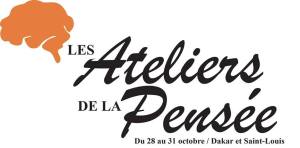
 Sono tutti esponenti di una generazione che non è accomunata tanto dall’età anagrafica o da una stessa cornice ideologica, quanto dalla consapevolezza che le questioni dell’Africa vanno ormai affrontate con discorsi nuovi e rigore metodologico. Di tale percorso, Mbembe – filosofo e storico camerunese che insegna all’Università «Wits» di Johannesburg – è uno degli esponenti più riconosciuti, convinto com’è che siamo solo agli inizi della «planetarizzazione della questione africana» e che ciò non fa che rinforzare la responsabilità degli africani. Anche per questo non condivide, per esempio, l’afrocentrismo, che porta i suoi adepti a fare dell’Occidente «l’oggetto oscuro del loro odio». In tal modo essi, già scriveva Mbembe in «Postcolonialismo» (Booklet, 2005), si autocondannano a essere «soggetti spossessati della loro soggettività, della loro voce e del loro desiderio».
Sono tutti esponenti di una generazione che non è accomunata tanto dall’età anagrafica o da una stessa cornice ideologica, quanto dalla consapevolezza che le questioni dell’Africa vanno ormai affrontate con discorsi nuovi e rigore metodologico. Di tale percorso, Mbembe – filosofo e storico camerunese che insegna all’Università «Wits» di Johannesburg – è uno degli esponenti più riconosciuti, convinto com’è che siamo solo agli inizi della «planetarizzazione della questione africana» e che ciò non fa che rinforzare la responsabilità degli africani. Anche per questo non condivide, per esempio, l’afrocentrismo, che porta i suoi adepti a fare dell’Occidente «l’oggetto oscuro del loro odio». In tal modo essi, già scriveva Mbembe in «Postcolonialismo» (Booklet, 2005), si autocondannano a essere «soggetti spossessati della loro soggettività, della loro voce e del loro desiderio».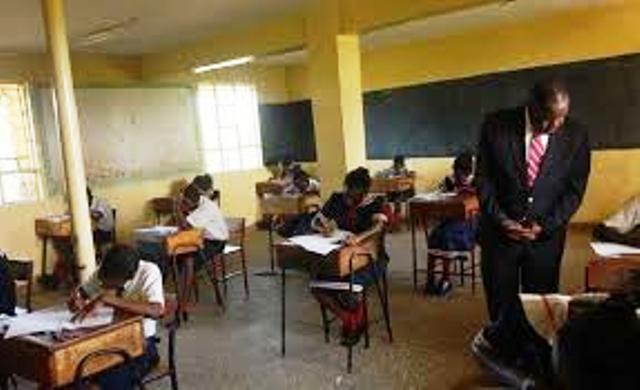
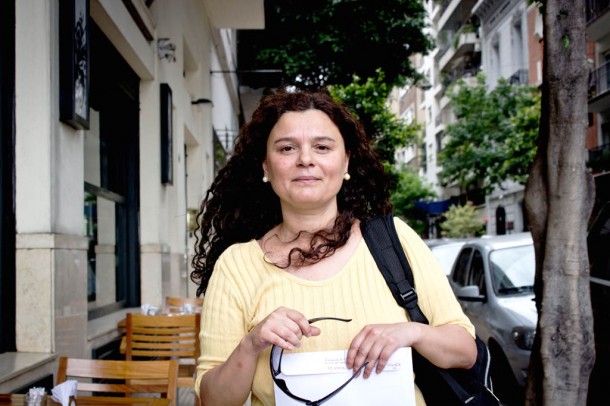
 Como he comentado, esta investigación fue llevada a cabo de manera multidisciplinar (desde las Relaciones Internacionales con el Derecho Internacional y la Comunicación Social), por lo que se ha consultado abundante bibliografía, acompañada de un trabajo de campo de más de cuatro años, del cual fueron seleccionadas ochenta y cuatro entrevistas a distintos referentes del pueblo saharaui y personas de otro origen involucradas en el tema, realizadas la mayor parte de ellas de modo presencial en África (Sudáfrica, Mozambique, Nigeria y Argelia), América Latina (Argentina, Cuba y México y Europa (España) y un menor número concretadas a través de internet. Ello, junto con la experiencia adquirida a partir de la tarea desarrollada desde la Cátedra Libre de Estudios sobre el Sahara Occidental, ha permitido poner en diálogo una serie de ideas y saberes, con el fin de investigar el tópico presentado y, sobre todo, de que sea el propio pueblo saharaui quien asuma un rol protagónico en la construcción de los conocimientos que el trabajo aporta, de modo que las entrevistas son consideradas un insumo prioritario a lo largo de las tres partes en las que se divide esta obra, realizada no solo con una perspectiva decolonial sino también desde la periferia de los centros de poder mundial y llevada a cabo por una mujer, latinoamericana y afrodescendiente.
Como he comentado, esta investigación fue llevada a cabo de manera multidisciplinar (desde las Relaciones Internacionales con el Derecho Internacional y la Comunicación Social), por lo que se ha consultado abundante bibliografía, acompañada de un trabajo de campo de más de cuatro años, del cual fueron seleccionadas ochenta y cuatro entrevistas a distintos referentes del pueblo saharaui y personas de otro origen involucradas en el tema, realizadas la mayor parte de ellas de modo presencial en África (Sudáfrica, Mozambique, Nigeria y Argelia), América Latina (Argentina, Cuba y México y Europa (España) y un menor número concretadas a través de internet. Ello, junto con la experiencia adquirida a partir de la tarea desarrollada desde la Cátedra Libre de Estudios sobre el Sahara Occidental, ha permitido poner en diálogo una serie de ideas y saberes, con el fin de investigar el tópico presentado y, sobre todo, de que sea el propio pueblo saharaui quien asuma un rol protagónico en la construcción de los conocimientos que el trabajo aporta, de modo que las entrevistas son consideradas un insumo prioritario a lo largo de las tres partes en las que se divide esta obra, realizada no solo con una perspectiva decolonial sino también desde la periferia de los centros de poder mundial y llevada a cabo por una mujer, latinoamericana y afrodescendiente.




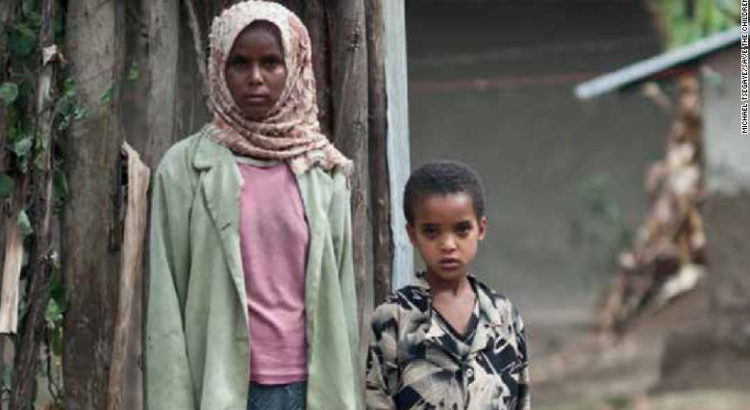
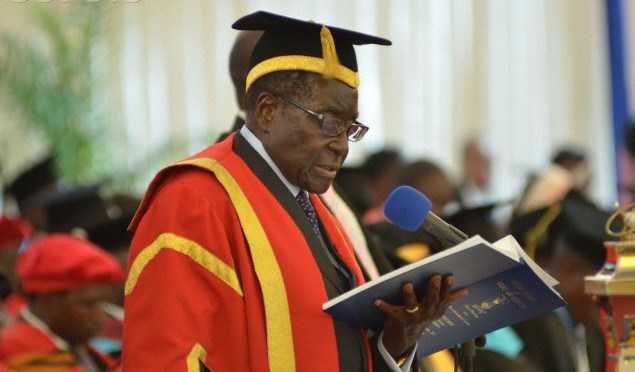








 Users Today : 3
Users Today : 3 Total Users : 35460782
Total Users : 35460782 Views Today : 7
Views Today : 7 Total views : 3419994
Total views : 3419994